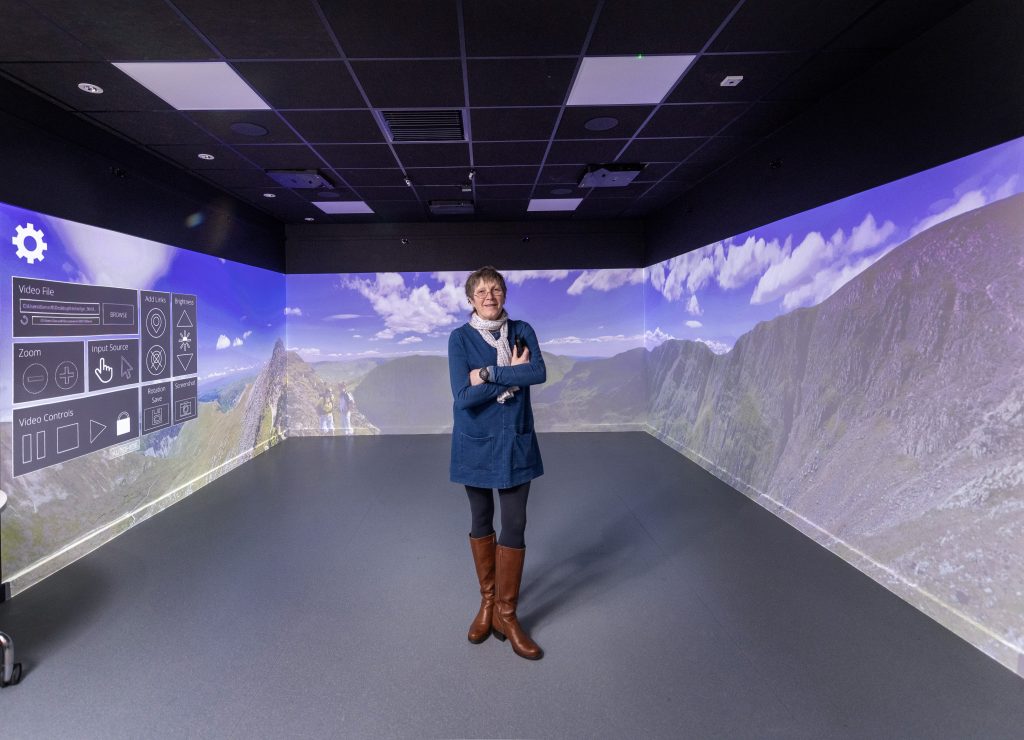Returning to SocMedHE’s why, to think about SocMedHE’s future how’s

University of Cumbria.
Amanda Taylor-Beswick Director for Digital Transformation University of Cumbria.
4th January 2022
Photograph Jonathan Becker
Professor Amanda Taylor-Beswick
Professor of Digital and Social Sciences, Institute of Health, University of Cumbria
The inaugural Social Media for Learning in Higher Education (SocMedHE) conference took place in Sheffield Hallam University (SHU) on 18th December 2015 and had as its focus “the creation of a forum for academics, their students, developers, and strategic managers to consider the opportunities, challenges, and disruptive influence of social media for learning” (SHU, 2015).
The sustained presence of SocMedHE on the academic conference calendar attests to its success, in achieving what it set out to do. Including establishing a context in which the academic community could connect, reflect, and collaborate around pedagogic progress and the design of contemporary teaching and learning experiences, at a time when social media began to voraciously permeate the field.
Whilst the conference has taken us on an important pedagogical journey, the 10th event, returning to its academic origins of SHU, presents a timely juncture in which to critically re-consider the ‘why’ of SocMedHE. A reflective exercise that is essential for envisioning the ‘how,’ as a collective entity, SocMedHE might continue to respond to educational technologies opportunities and challenges, considering the context as it is now, to the one in which it all began.
As I have noted elsewhere, “there now exists a much more acute need to listen to and in the world more broadly, and to lean into the many and current unknowns and uncertainties” in and for higher education (Taylor-Beswick and Hornung, 2024, p.2). And as Turner and Honeychurch (2024) aptly point out, “SocMedHE is much more than just a conference”, and therefore the space to do this.
It has significance as social entity, given its contributions to the post-compulsory educational landscape, a sector that is, or indeed should be, grappling with the potentialities and perils of existing, new, and emerging technologies. This includes social media and AI and that need to pay closer attention to the ethical and environmental impacts they are and will continue to have on our world.
Biography
Professor Amanda Taylor-Beswick is a digital social scientist whose research interests and work spans a range of socio-technological intersections. Amanda is a qualified social worker by background, with extensive practice experience in psychiatric social work and social work with d/Deaf children and their families. Through these practice experiences, Amanda developed a curiosity about how advancements in technologies could and should be harnessed for social good. Progressing into academia, this became focused on the contemporisation and real-world relevancy of higher education, with a particular emphasis on professional disciplines and how relational curriculum design, content, delivery, and assessment supports graduate preparedness for an increasingly digitally saturated world. As a multi award-winning and internationally published academic recognised for leading critical and ethical discourse regarding social work and digitalisation, Amanda is a leader in the development of pedagogic approaches that support the progression of digital knowledge and literacies for academics, students, and practitioners.
References
Sheffield Hallam University (2015) Proceedings – Social Media for Learning in Higher Education Conference. Available at: https://blogs.shu.ac.uk/socmedhe/proceedings/ (Accessed: 16 October 2024).
Susskind, R.E. & Susskind, D. (2015) The future of the professions: How technology will transform the work of human experts, Oxford: Open University Press.
Taylor-Beswick, A.M.L. and Hornung, E. (2024) Doing Phenomenography: A Practice Guide. Bristol: Policy Press.
Turner, S. and Honeychurch, S. (2024) SocMedHE: More than a conference. The Journal of Social Media for Learning. 4 (1), pp. 25-38. https://doi.org/10.24377/LJMU.jsml.article724